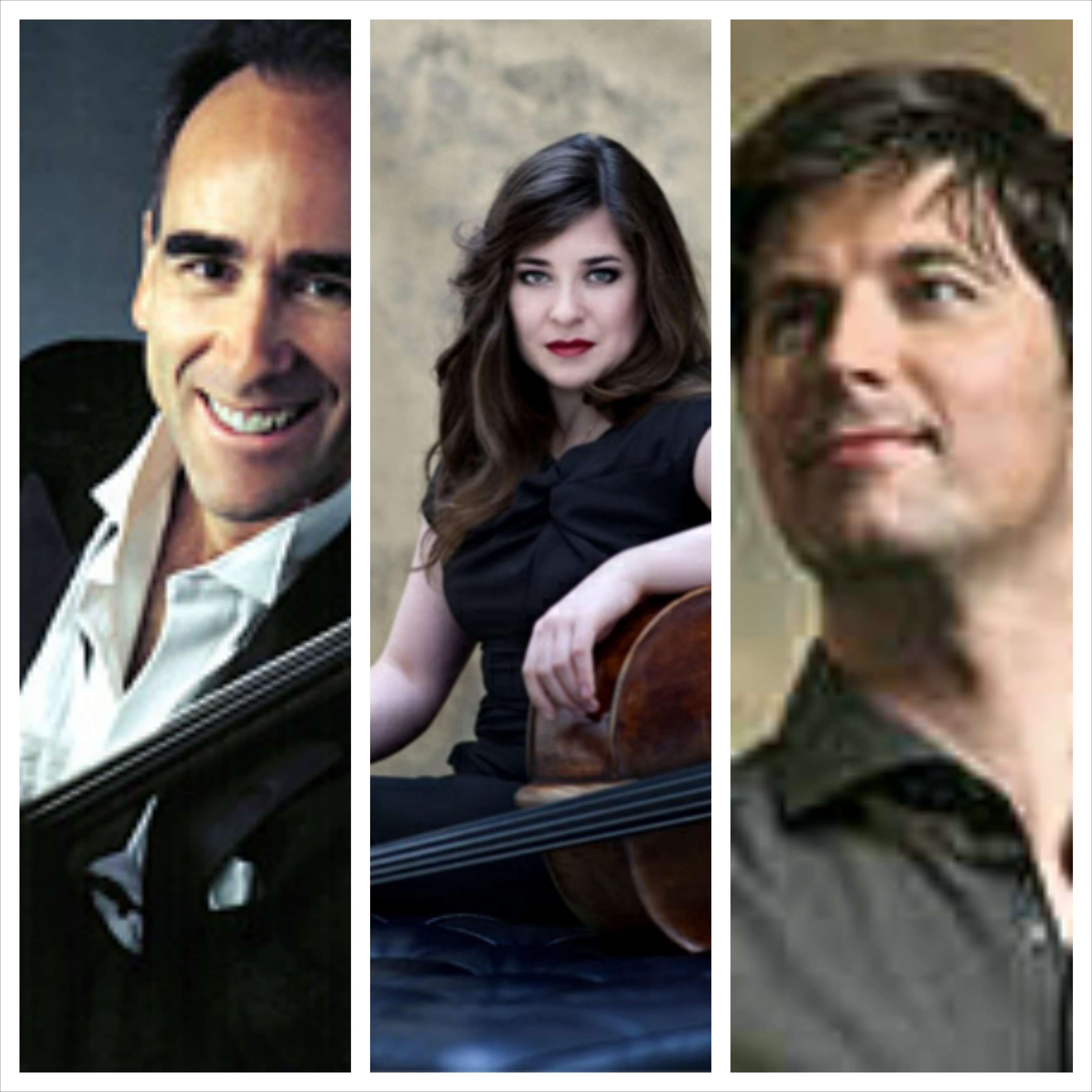|
Back
Penderecki Redux New York
Avery Fisher Hall, Lincoln Center
10/24/2013 - & October 25, 26*, 2013
Maurice Ravel: Rapsodie espagnole
Krzysztof Penderecki: Concerto Grosso
Modest Mussorgsky: Pictures at an Exhibition (orchestrated by Maurice Ravel)
Carter Brey, Alisa Weilerstein, Daniel Müller-Schott (Cellos)
New York Philharmonic Orchestra, Charles Dutoit (Conductor)

K. Penderecki/C. Dutoit (© Marek Beblot/Sfsymphony.org)
For this listener, and many others who attended the all-Penderecki concert at Symphony Space on Friday, the New York Philharmonic concerts this weekend and the Polish Cultural Institute events, this has been a breathtaking introduction to a near-80-year-old giant.
For myself it has been a re-introduction. Long an admirer of Krzysztof Penderecki’s massive palettes like the Hiroshima Threnody and St. Luke Passion, I never made the effort to go through his other phases: the earlier 12-tone phase and the later relatively more conservative music.
This week, though, the lights went on, the composer appeared, the parameters started to become visible, and an elementary understanding of Mr. Penderecki began to unfold.
That was certainly true as the whirling Penderecki world of chamber compositions began to make sense at the Symphony Space concert, where he described some of the music. Obviously attempting to make formalistic sense of these works is an arduous, not always thankful task, for he has always felt that emotion and communication trumps formality.
Last night, Charles Dutoit, whose friendship with the composer goes back 50 years, performed another gyrating work, this masked with the title Concerto Grosso. True, this form has attracted contemporaries from Bloch to Schnittke, but Penderecki’s use of three cellos, rather than a smaller orchestra, put it in a class of its own. But in Penderecki’s eclectic magna corpus, its placement is a puzzle.

C. Brey/A.Weilerstein/D. Müller-Schott
(© Chris Lee/www.aliciaweilerstein.com/d.mueller-schott.com)
A trio of outstanding cellists produced the 35 minutes of sounds, starting and finishing with separate cadenzas, following with bursts of bravura, solos by one cello enveloped, covered, outdone by the other cellos. In fact, the one-movement work had minestrone of so many effects, so much music made by this trio, that one could only momentarily keep up with their expertise.
Instead, one turned to the Nerw York Philharmonic, since the orchestral effects were far more interesting. Maestro Dutoit had premiered this piece in Tokyo, so his is probably the definitive performance. What we had was an enigma of program music–without a program. What were these jackbooted measures from percussion and basses? Why the frequent marches, the brooding passages, the agitated nocturne? I could well follow the short themes modulated, going into strange keys: this par for the course. But why the sensational xylophone cadenza, followed by the most soothing English horn motif, followed by the most intensive highly romantic trio by the cellos.
So romantic is this ending, in fact, that the sixth movement could have been written by Samuel Barber, the last measures and the quiet C Major chord could have come by Brahms.
The Concerto Grosso, then is an enigma. But that is the composer’s way. He appeared at the end, hugging, kissing, obviously overjoyed by the performance. And with First Chair Cellist Brey, star Weilerstein and the new German virtuoso Müller-Schott, who wouldn’t be pleased?
This was the centerpiece for two popular items. Mr. Dutoit was not going to take Ravel’s Spanish Rhapsody at an ordinary pace. This was slow languorous, torpid, beautifully done but obviously more Caribbean than Iberian. As for the final Pictures at an Exhibition, it is played so frequently that it becomes old hat.
Perhaps some day, a conductor will use the very Russian Stokowski orchestration. Yes, he omitted some sections, but at least the sounds, like the sounds of Penderecki, will (in Joe Orton’s words), prick up our ears.
Harry Rolnick
|